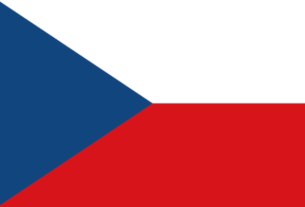The German Defence Minister warns of escalating Russian threats by the end of the decade, urging European countries to fortify their defence industries and adapt to geopolitical shifts.
German Defence Minister Boris Pistorius issued a stark warning that Europe could be facing heightened threats from Russia by the end of the decade in a recent interview published in German newspaper, Welt am Sonntag.
Pistorius emphasised the urgent need for European Union countries to bolster their defence industries in preparation for potential challenges, especially in light of the possibility of reduced U.S. engagement on the continent.
Pistorius highlighted the seriousness of Russian President Vladimir Putin’s threats, stating, “[Putin’s] threats against the Baltic states, Georgia, and Moldova must be taken very seriously. This is not just sabre-rattling. We could be facing dangers by the end of this decade.”
Germany rebuilding defence
With the geopolitical landscape evolving, Pistorius called for European countries to adapt swiftly. He urged nations to catch up in terms of armed forces, industry, and society, underscoring a five to eight-year window to enhance defence capabilities.
Notably, Germany has intensified efforts to rebuild its armed forces, drawing on a €100 billion special fund established in the aftermath of Russia’s invasion of Ukraine.
Pistorius, who assumed the role of defence minister earlier this year, has faced some controversy in Germany due to the country’s pacifist culture, shaped by the aftermath of World War Two.
He remains steadfast in his commitment to a more robust military posture, presenting new defence guidelines that envision the Bundeswehr being “ready for war” and Germany assuming a leadership role in the European military landscape.
He stated, “It will take time for the defence industry to ramp up its capacities. We now have around five to eight years to catch up – both regarding the armed forces, industry and society.”
In a bid to strengthen European defence collaboration, Pistorius advocated for adding a military component to the Weimar Triangle, an informal forum comprising Germany, Poland, and France.
He expressed keen interest in this collaboration and extended an invitation to the newly-appointed Polish Prime Minister Donald Tusk, saying, “We are very interested in [adding a military component to the Weimar Triangle].”
U.S. interests pulling away from Europe
As the U.S. shifts its focus towards the Indo-Pacific region, Pistorius highlighted the need for Europe to enhance its security and defence capabilities independently. He warned that Russia’s escalation of arms production, particularly in sustaining its operations in Ukraine, poses a genuine threat to Europe.
Pistorius called for proactive measures, including increased military cooperation beyond Europe’s borders, stating, “The alternative would be to have no more contacts with these countries and to leave them to the Russians and Chinese from the outset. And that would be even more dangerous.”__Courtesy EuroNews





